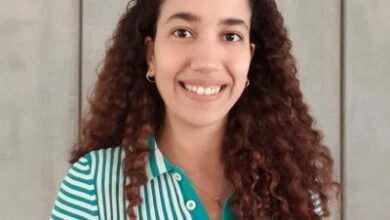Tribune “Oral health is the business of all”
In Africa, oral health is unfortunately not a major concern, though the reports of the World Health Organization (WHO) are clear: 60 to 90% of schoolchildren suffer from dental pathologies in these developing countries with poor access to fluoride and care.
By Daisy Lekounda*
Unanimously, the practitioners believe that the continent’s population continues to grow and the need for dental care is not left behind.
There is efficient care response in developed countries, while in Africa the demand is greater than the number of practitioners. Existing care centers do not meet the needs of the population from both public and private point of view.
Only few African countries are implementing public health policies to support this important medical specialty. Indeed oral health has a major impact on health in general. The mouth is a gateway to bacteria, viruses and fungi. All this can obviously weaken the general health; including many immune, cardiac, respiratory and endocrine pathologies that require serious oral hygiene and health.
« Dental care is only 10% of overall health care expenses »
We are finally facing a health problem that goes beyond its specialty, which highlights the need for collective work by medical teams.
Actually, oral health is the business of all stakeholders in the health system, from primary agents to doctors and dentists. The pediatrician, for example, can be at the forefront of awareness and early detection of oral diseases.
The lack of early prevention leads more often to the state of multi-caries (several caries) forcing the Governments to spend more for care.
In the Cipres member countries (countries with a social coverage policy such as Benin, Burkina Faso, Cameroon, Central African Republic, Comoros, Congo, Ivory Coast, Gabon, Equatorial Guinea, Mali, Niger, Senegal, Chad and Togo ), dental care accounts for only 10% of total health expenses.
Reintegrate life style lessons at school
Dental hygiene was taught at school before, in addition to parent education. Should we not think of reintegrating it for optimum prevention efforts? The teachers will also be positively involved in the spread of health messages in Africa. It is also a way for them to ensure that our children are aware of their life capital.
Poor oral health causing fragile general health … and a loss of self-esteem
Poor people are more likely to have poor oral health, causing fragile general health. and functional and aesthetic discomfort.
As a dental surgeon specializing in Aesthetics of smile, I meet a lot of patients with social disabilities because of their smile. So, my cry of distress is for all those young people who have not benefited from learning simple preventive gestures like brushing their teeth with fluoride toothpaste and who are, accordingly, victims of discrimination as to their social integration due to unsightly dentition. As innocuous as it may seem, individuals with an unsightly smile develop decreasing confidence and self-esteem, according to a study conducted by some Western sociologists. The purpose of my work when I smile again is not always to give my patients a Hollywood smile, but to react to psychological and social suffering first. Indeed, according to the WHO. Health is « a complete state of physical, mental and social well-being that does not only mean lack of disease or infirmity ».
It is time for African countries to mobilize more to ensure that comprehensive oral prevention policies are finally established with the support and know-how of all health and national education workers. The right actions can also be learned in a fun way with very simple means such as awareness campaigns through some educational workshops on health, and information and screening days.
* Daisy Lekounda is Gabonese. After studying medicine in France, she specialized in dentistry and then dental aesthetics at New York University. She then began her professional career in Bordeaux and Paris before setting up her own business in Gabon, Smile Design Specialise where she continues to practice.






